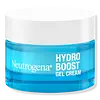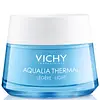What's inside
What's inside
 Key Ingredients
Key Ingredients

 Benefits
Benefits

 Concerns
Concerns

 Ingredients Side-by-side
Ingredients Side-by-side

Water
Skin ConditioningGlycerin
HumectantDimethicone
EmollientCetearyl Olivate
Sorbitan Olivate
EmulsifyingSodium Hyaluronate
HumectantSerine
MaskingGlycine
BufferingAlanine
MaskingThreonine
Arginine
MaskingProline
Skin ConditioningLysine Hcl
Skin ConditioningGlutamic Acid
HumectantSodium PCA
HumectantPCA
HumectantSodium Lactate
BufferingUrea
BufferingSodium Chloride
MaskingCitric Acid
BufferingBetaine
HumectantAllantoin
Skin ConditioningFructose
HumectantMaltose
MaskingTrehalose
HumectantGlucose
HumectantPentylene Glycol
Skin ConditioningSynthetic Beeswax
Emulsion StabilisingPolyacrylate Crosspolymer-6
Emulsion StabilisingDimethicone Crosspolymer
Emulsion StabilisingDimethiconol
EmollientEthylhexylglycerin
Skin ConditioningCaprylyl Glycol
EmollientSodium Hydroxide
BufferingWater, Glycerin, Dimethicone, Cetearyl Olivate, Sorbitan Olivate, Sodium Hyaluronate, Serine, Glycine, Alanine, Threonine, Arginine, Proline, Lysine Hcl, Glutamic Acid, Sodium PCA, PCA, Sodium Lactate, Urea, Sodium Chloride, Citric Acid, Betaine, Allantoin, Fructose, Maltose, Trehalose, Glucose, Pentylene Glycol, Synthetic Beeswax, Polyacrylate Crosspolymer-6, Dimethicone Crosspolymer, Dimethiconol, Ethylhexylglycerin, Caprylyl Glycol, Sodium Hydroxide
Water
Skin ConditioningGlycerin
HumectantCaprylic/Capric Triglyceride
MaskingAlcohol Denat.
AntimicrobialPropanediol
SolventIsopropyl Palmitate
EmollientButyrospermum Parkii Butter
Skin ConditioningAmmonium Polyacryloyldimethyl Taurate
Emulsion StabilisingZea Mays Starch
AbsorbentMannose
HumectantGlyceryl Isostearate
EmollientCetearyl Alcohol
EmollientCetearyl Glucoside
EmulsifyingSodium PCA
HumectantSodium Hyaluronate
HumectantSodium Hydroxide
BufferingP-Anisic Acid
MaskingCaprylyl Glycol
EmollientCitric Acid
BufferingAcrylates/C10-30 Alkyl Acrylate Crosspolymer
Emulsion StabilisingParfum
MaskingWater, Glycerin, Caprylic/Capric Triglyceride, Alcohol Denat., Propanediol, Isopropyl Palmitate, Butyrospermum Parkii Butter, Ammonium Polyacryloyldimethyl Taurate, Zea Mays Starch, Mannose, Glyceryl Isostearate, Cetearyl Alcohol, Cetearyl Glucoside, Sodium PCA, Sodium Hyaluronate, Sodium Hydroxide, P-Anisic Acid, Caprylyl Glycol, Citric Acid, Acrylates/C10-30 Alkyl Acrylate Crosspolymer, Parfum
 Reviews
Reviews

Ingredients Explained
These ingredients are found in both products.
Ingredients higher up in an ingredient list are typically present in a larger amount.
Caprylyl Glycol is a humectant and emollient, meaning it attracts and preserves moisture.
It is a common ingredient in many products, especially those designed to hydrate skin. The primary benefits are retaining moisture, skin softening, and promoting a healthy skin barrier.
Though Caprylyl Glycol is an alcohol derived from fatty acids, it is not the kind that can dry out skin.
This ingredient is also used as a preservative to extend the life of products. It has slight antimicrobial properties.
Learn more about Caprylyl GlycolCitric Acid is an alpha hydroxy acid (AHA) naturally found in citrus fruits like oranges, lemons, and limes.
Like other AHAs, citric acid can exfoliate skin by breaking down the bonds that hold dead skin cells together. This helps reveal smoother and brighter skin underneath.
However, this exfoliating effect only happens at high concentrations (20%) which can be hard to find in cosmetic products.
Due to this, citric acid is usually included in small amounts as a pH adjuster. This helps keep products slightly more acidic and compatible with skin's natural pH.
In skincare formulas, citric acid can:
While it can provide some skin benefits, research shows lactic acid and glycolic acid are generally more effective and less irritating exfoliants.
Most citric acid used in skincare today is made by fermenting sugars (usually from molasses). This synthetic version is identical to the natural citrus form but easier to stabilize and use in formulations.
Read more about some other popular AHA's here:
Learn more about Citric AcidGlycerin is already naturally found in your skin. It helps moisturize and protect your skin.
A study from 2016 found glycerin to be more effective as a humectant than AHAs and hyaluronic acid.
As a humectant, it helps the skin stay hydrated by pulling moisture to your skin. The low molecular weight of glycerin allows it to pull moisture into the deeper layers of your skin.
Hydrated skin improves your skin barrier; Your skin barrier helps protect against irritants and bacteria.
Glycerin has also been found to have antimicrobial and antiviral properties. Due to these properties, glycerin is often used in wound and burn treatments.
In cosmetics, glycerin is usually derived from plants such as soybean or palm. However, it can also be sourced from animals, such as tallow or animal fat.
This ingredient is organic, colorless, odorless, and non-toxic.
Glycerin is the name for this ingredient in American English. British English uses Glycerol/Glycerine.
Learn more about GlycerinSodium Hyaluronate is hyaluronic acid's salt form. It is commonly derived from the sodium salt of hyaluronic acid.
Like hyaluronic acid, it is great at holding water and acts as a humectant. This makes it a great skin hydrating ingredient.
Sodium Hyaluronate is naturally occurring in our bodies and is mostly found in eye fluid and joints.
These are some other common types of Hyaluronic Acid:
Learn more about Sodium HyaluronateSodium Hydroxide is also known as lye or caustic soda. It is used to adjust the pH of products; many ingredients require a specific pH to be effective.
In small amounts, sodium hydroxide is considered safe to use. However, large amounts may cause chemical burns due to its high alkaline.
Your skin has a natural pH and acid mantle. This acid mantle helps prevent harmful bacteria from breaking through. The acid mantle also helps keep your skin hydrated.
"Alkaline" refers to a high pH level. A low pH level would be considered acidic.
Learn more about Sodium HydroxideSodium PCA is the sodium salt of pyroglutamic acid. It is naturally occurring in our skin's natural moisturizing factors where it works to maintain hydration.
The PCA stands for pyrrolidone carboxylic acid, a natural amino acid derivative.
This ingredient has skin conditioning, anti-inflammatory, and humectant properties. Humectants help hydrate your skin by drawing moisture from the air. This helps keep your skin moisturized.
Learn more about Sodium PCAWater. It's the most common cosmetic ingredient of all. You'll usually see it at the top of ingredient lists, meaning that it makes up the largest part of the product.
So why is it so popular? Water most often acts as a solvent - this means that it helps dissolve other ingredients into the formulation.
You'll also recognize water as that liquid we all need to stay alive. If you see this, drink a glass of water. Stay hydrated!
Learn more about Water